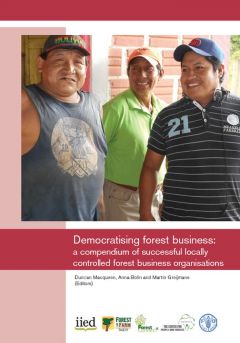Focal point
Location
Mission
Our mission is to build a fairer, more sustainable world, using evidence, action and influence in partnership with others.
Who we are
IIED is one of the world’s most influential international development and environment policy research organisations. Founded in 1971 by economist Barbara Ward, who forged the concept and cause of sustainable development, we work with partners on five continents. We build bridges between policy and practice, rich and poor communities, the government and private sector, and across diverse interest groups. We contribute to many international policy processes and frameworks, including the Intergovernmental Panel on Climate Change, the Millennium Ecosystem Assessment and the UN conventions on climate change and biological diversity.
What we do
IIED carries out research, advice and advocacy work. We carry out action research — generating robust evidence and know-how that is informed by a practical perspective acquired through hands-on research with grassroots partners — and we publish in journals and maintain high research standards. We advise government, business and development agencies, and we argue for changes in public policy. We focus on bottom-up solutions, stay open to flexible, adaptable solutions and are marked by a tradition of challenging conventional wisdom through original thinking.
Resources
Displaying 171 - 175 of 367Opening up land contracts
Celebrates the launching of OpenLandContracts, an international repository of land deals created in response to the general lack of transparency surrounding such deals. The contracts are annotated to help users navigate them.
Pastoralism pays: new evidence from the Horn of Africa
As competition for land and water resources intensifies, there is a growing need to re-evaluate the comparative social and environmental advantages of extensive pastoral production systems. 9 studies of hard-to-reach pastoral areas in Ethiopia and Kenya reaffirm that the true value of pastoral systems is largely overlooked. Camel milk, goat meat, draught power and other goods and services provide subsistence products and household income; they also create employment, income opportunities and access to credit along their ‘value chains’.
Reconsidering approaches to women’s land rights in sub-Saharan Africa
Emphasises the need for donors, NGOs and governments to take a more comprehensive approach to women’s land rights that addresses underlying gender dynamics to bring about transformative gender change rather than token gains for women. To be effective, work to secure women’s rights to land must focus on tackling social relations to transform gender dynamics and needs to start at household level.
Democratising Forest Business: A Compendium of Successful Locally Controlled Forest Business Organizations
Forests worldwide are home to approximately 1.3 billion people and must cater to the multiple needs of people - from providing local goods and services (access to income, food, clean water, wood energy, construction materials, fertile soils, medicinal and cosmetic products, and recreation) to providing global goods and services (climate change mitigation, biodiversity conservation, hydrological and mineral cycles). It is a tall order because many of these needs compete with one another.
Follow the money. An advocate’s guide to securing accountability in agricultural investments
This guide is for organisations and individuals working to support communities whose land rights, lives and livelihoods have been negatively impacted by agricultural investments. It provides guidance on strategies for holding the actors involved in agricultural investments accountable for human rights violations and all sorts of malpractices, such as:
● Mapping investment chains
● Formal accountability mechanisms
● Complementary advocacy strategies





